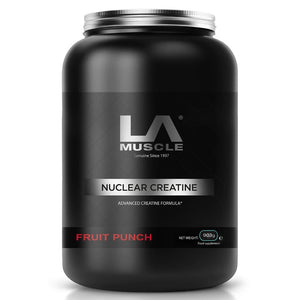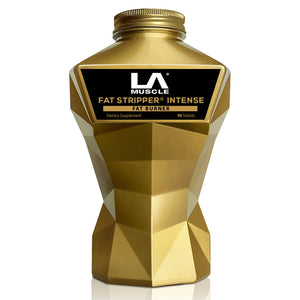
Magnesium is one of the most essential minerals for overall health, yet many people are deficient without even realising it. This crucial nutrient plays a role in hundreds of biochemical processes in the body, influencing everything from energy production to muscle function and even mental health. In this article, we’ll explore the benefits of magnesium, the different types available, their specific uses, the ideal dosage, and how long you should take it.
Why Magnesium Is Essential
Magnesium is involved in over 300 enzymatic reactions in the body. Some of its primary benefits include:
-
Improved Muscle Function & Recovery – Prevents cramps, enhances muscle relaxation, and supports post-workout recovery.
-
Stronger Bones – Works alongside calcium and vitamin D to maintain bone density.
-
Better Sleep – Helps regulate melatonin and reduces stress, improving sleep quality.
-
Heart Health – Lowers blood pressure, regulates heartbeat, and supports cardiovascular health.
-
Mental Health & Stress Reduction – Plays a role in reducing anxiety, depression, and brain fog.
-
Boosts Energy & Reduces Fatigue – Essential for ATP (energy) production.
-
Supports Digestive Health – Helps prevent constipation and improves gut function.
Types of Magnesium & Their Specific Benefits
Not all magnesium is the same, and different forms have unique advantages. Here’s a breakdown of the most common types:
1. Magnesium Glycinate
-
Best For: Sleep, anxiety, relaxation, muscle recovery.
-
Benefits: Highly bioavailable, gentle on the stomach, great for stress relief and improving sleep.
-
Dosage: 200-400mg per day.
-
How Long to Take: Can be taken daily for long-term benefits.
2. Magnesium Citrate
-
Best For: Digestion, constipation relief.
-
Benefits: Helps relax the digestive tract and relieve occasional constipation, while also supporting muscle relaxation.
-
Dosage: 200-400mg per day.
-
How Long to Take: Short-term for constipation; long-term for overall health.
3. Magnesium L-Threonate
-
Best For: Brain health, memory, focus.
-
Benefits: Crosses the blood-brain barrier, improving cognitive function, reducing brain fog, and potentially supporting mental clarity.
-
Dosage: 1,000-2,000mg per day.
-
How Long to Take: Best taken for at least a few months for cognitive benefits.
4. Magnesium Malate
-
Best For: Energy, muscle pain, fibromyalgia.
-
Benefits: Helps with muscle soreness, fatigue, and enhances energy production by supporting ATP.
-
Dosage: 300-500mg per day.
-
How Long to Take: Can be taken daily as needed.
5. Magnesium Taurate
-
Best For: Heart health, blood pressure regulation.
-
Benefits: Supports cardiovascular health, stabilises blood pressure, and improves heart rhythm.
-
Dosage: 200-400mg per day.
-
How Long to Take: Long-term for heart health benefits.
6. Magnesium Chloride
-
Best For: Absorption, overall magnesium replenishment.
-
Benefits: Well absorbed and often used in transdermal (topical) applications to relieve muscle pain.
-
Dosage: 200-400mg per day (oral); topical use as needed.
-
How Long to Take: Can be used daily.
7. Magnesium Sulfate (Epsom Salt)
-
Best For: Muscle relaxation, detoxification.
-
Benefits: Used primarily in baths for relaxation and muscle recovery; can also be used for constipation relief.
-
Dosage: Bath use as needed; oral use (only when directed by a healthcare provider).
-
How Long to Take: Occasional use.
8. Magnesium Oxide
-
Best For: Occasional constipation, digestive support.
-
Benefits: Poorly absorbed but effective as a laxative.
-
Dosage: 250-500mg as needed.
-
How Long to Take: Short-term use for constipation.
How to Take Magnesium for Best Absorption
-
Take magnesium with food to avoid stomach discomfort.
-
Avoid taking it at the same time as calcium or iron for better absorption.
-
If taking magnesium for sleep, consume it 30-60 minutes before bed.
-
For muscle cramps, consider combining magnesium with potassium and sodium.
-
For brain health, opt for Magnesium L-Threonate.
-
If taking multiple forms, split doses throughout the day.
How Long to Take Magnesium
Magnesium is safe for long-term use, and since deficiency is common, many people benefit from taking it consistently. However, the form and purpose dictate the duration:
-
Daily Use: Magnesium glycinate, taurate, malate, and L-threonate are safe for daily supplementation.
-
Short-Term Use: Magnesium citrate and oxide should be used occasionally for digestion.
-
Periodic Use: Magnesium sulfate (Epsom salt) can be used as needed for muscle relaxation.
Magnesium is an essential mineral that supports nearly every function in your body. Whether you need it for muscle recovery, sleep, heart health, brain function, or digestion, choosing the right type is key. If you’re unsure, Magnesium Glycinate is one of the best all-around forms for daily supplementation. Always consult a healthcare professional if you have underlying conditions or are taking other medications.
By incorporating the right magnesium supplement into your routine, you can experience better sleep, improved muscle function, enhanced focus, and overall better health!


























